Dashnor Kaloçi
Memorie.al publishes the unknown story with the rare testimonies of two brothers from Laçi, Skënder and Shpëtim Marku, who at the end of April 1988, together with their friend, Agron Gjoka, took the road towards the city of Peshkopi and after climbing to the top of Korab mountain covered with snow and a big storm with rain and snow, they crossed the state border in the gentle belt without being understood by the Albanian border guards. How did they orient themselves until they arrived in the village of Restelica in Dragash / Dragaash, where they surrendered themselves to the Yugoslav border post and how were they treated by the UDB authorities in the Prizren city prison, what they were asked about there and why after the sentence one month in prison for illegal border crossing, they were not allowed to go to Belgrade where they would apply for political asylum at the US Embassy, but were handcuffed and sent to the Morini border crossing. How did the two Marku brothers stop in some cities where the national road passed, where rallies were organized, gathering people by force from work centers and schools, such as in Kukës, Milot, Laç, Fushë-Krujë, etc., where speeches were held to unmasked them, and then tortured in the Kruja investigation, and tried in the town of Laç, where they maintained a manly attitude. Which led to them being given maximum sentences of 20 and 17 years, respectively, sending them to Qafë-Bari, Spaç and Burrel, from where they were released in March 1991, with the latest condemned.
In the first part of this article published in the last issue, according to the testimony of 60-year-old Skënder Marku, former commander of Tirana Prison in 1997 with the rank of major, and his younger brother, Shpetim, we met with the story of their escape from Albania in April 1988. The Marku family is originally from the villages of Peshkopi, but their father, Hakik Marku, a former assistant doctor at the Peshkopi city hospital, like many other families in in the 1960s, he moved to the town of Laç, which had just begun construction. After completing his compulsory military service in 1981, Skënderi started working in the office of the Chemical-Metallurgical Plant of Laç, where his older brother, Iliri, also worked. Although the Marku family had no problems with the communist regime of that time, Skënderi himself, who was very fond of literature and sports, had his reserves and did not agree with many aspects of life that the ruling regime of that time was approaching. Based on this, he decided to flee Albania and made the escape plan only with his younger brother, Shpëtim, who at that time was the national champion in the classic youth wrestling with the “Kastrioti” team from Laç. And they decided to carry out their plan on the last day of April 1988, when Shpetim, who was performing compulsory military service in the district of Pogradec, went to the town of Laç and met with Skënder, but after taking his friend with him. his, Agron Gjoka, who had a brother who fled to the US and another in prison. It was the evening of April 23, 1988, when with a “Skoda” chrome car, they left Laçi immediately in the direction of the city of Peshkopi and after descending to the village of Kastriot, they left in the direction of Doda Castle, at the first morning of April 24, 1988, they were found on the top of Mount Korab, making about four to five hours of trekking in steep places and under a snowstorm with fog and frost.
(continued from the previous issue)
Crossing the border on April 24, 1988 at the top of Korab
After many vicissitudes in the heights of Mount Korab, walking on dirt roads and steep paths, in the bitter cold of that morning of April 24, 1988, Skënder Marku with his brother, Shpëtim, and their friend from Laçi, Agron Gjoka, was able to cross the state border somewhere near a post near the Doda Castle, without being noticed by anyone, as the guards at the nearest border post did not cover the area with services for reasons of extremely rugged terrain. Regarding this and their vicissitudes on Yugoslav soil, 60-year-old Skënder Marku, former commander of the Tirana Prison in 1977, with the rank of major, in his story exclusively for Memorie.al testifies: “From the center of the fire there at the top of Korab where we stayed for several hours to gather ourselves after that extremely grueling four to five hour long journey and on a terrain where you could not even pass the day, we decided to go out and cross the border before daybreak. How I now remember those moments of anxiety that seemed endless to us, when together with my brother Shpetim and his friend, Agron, we left behind the Albanian territory and went out on Yugoslav soil. I cannot describe in words how we felt in those moments. We finally thought that our great desire and dream to escape from that reality where we had lived for years and that had become unbearable to us, was becoming a reality. But it also seemed unbelievable to us and we looked at each other if that really happened the thing that Salvation and I had thought about for a long time and had endless conversations”?! This is how Skënderi remembers that long-awaited moment by them, when before dawn on April 24, 1988, he and his brother Shpetim, who was still wearing a soldier’s uniform, and his friend, Agron Gjoka, were in the territory of the Federal Republic. of Yugoslavia.
Journey to the village of Restelica in Dragash
After crossing the border and the journey they made afterwards, Shpetim recalls: “After our departure on Yugoslav soil, we had no choice but to surrender to the military authorities of that border area. As we continued our journey, moving further and further away from the border area, from a distance we spotted a shepherd with a few sheep. Instinctively we immediately stopped the three of us and although long before we got there, together with Skënder and Agron, we had foreseen all possible versions, so how would we respond when asked why we had left Albania, etc.., we reminded them once again how to be more confident in ourselves, as we thought they could catch us from moment to moment. Our answer would be this: “We left Albania for political motives and our desire is to go to the US, because there we cannot adapt to the system and politics pursued by the communist regime of Nexhmije Hoxha and Ramiz Alia.” As we were discussing this, we approached the shepherd and asked him where we were and what the nearest village was called. He told us that there we were near the village of Restelica in the Municipality of Dragash / Dragaash and the nearest town from there was Prizren from the north, while from the south, the nearest town was Tetovo. After we were somewhat oriented where we were, we kept asking him where he was going faster, to Prizren or Tetovo, he told us that it was almost the same walking distance, which took about three hours, both to Tetovo and to Prizren. After we separated from him, we decided to go in the direction of the village of Restelica and then towards Prizren where we would surrender. We had thought of Prizren before, and this not only because the Kosovo Albanians seemed closer to us than those of Macedonia, but also because in Prizren, Agron’s brother, Gazmir Gjoka, had surrendered several years ago., who had fled just like us, he had gained political asylum and was in the US. “When we arrived in the village of Restelica, we got in touch with some residents who showed us the border post and we went and surrendered where after being interrogated, they escorted us to the city of Prizren, handing us over to the Police Station”, Shpëtimi recalls regarding their journey until they reached that place as they had anticipated.
State Security pressures on the Marku family in Lac
But after the escape of Skënder and Shpëtim, what happened to the Marku family in the city of Laç and how did they learn the truth of the escape of their two sons? In this regard, Skënderi and Shpëtim recall that the truth about what happened to them, their family in the city of Laç, they learned a few days later from the people of the State Security. As of the morning of April 24, their parents had become very worried about the fact that their two sons, Skënderi me Shpëtim, were not returning home and even worse, they had not slept with their sister, Zana, as they had said the night before. The more time passed, the more anxiety increased in their family, as even in the days that followed, nothing new was learned about the fate of the two boys. The Marku family did not leave their relatives without asking, calling and sending a telegram, but all the answers from them came negative, saying that they knew nothing about Skënder and Shpetim. The terrible and endless anxiety that had plagued the Marku family was compounded by the arrival of State Security men at their home a few days later. They made small searches of the apartment, seizing almost all the photos of the family and after that search, the Security people told the Marku family, that: filthy traitors”. Later, Skënder and Shpëtim’s sisters, as well as his older brother, Iliri, were fired and banned from practicing their profession. In addition, the people of the Security and Democratic Front of the neighborhood where they lived, pressured their husbands to separate the wives (Skënder’s sisters), as well as Ilir’s bride, to separate him, as his two brothers ” they had betrayed the homeland. ” They were told: “They would take their houses and deport them to remote villages, so it would be better for them to separate their wives, who were the sisters of Skënder and Shpetim.” These things were openly said in several meetings held by the Democratic Front in the neighborhood for their unmasking. After all these pressures, a few days later, the people of the Security and the Front, went back to the Marku family and told them that: “their two traitorous sons, Skënder and Shpëtim, would soon be returned to Albania”. On the same days, several meetings were organized in the work center where Skënderi had worked, in the Office of the Chemical-Metallurgical Plant of Laç, where his colleagues were asked to condemn their act. But not only that in those meetings no one spoke against Skënder, but some of his friends like Naim Kasmi, Gëzim Hoxha, as well as the brothers Shefqet and Flamur Domi, defended Skënder, which cost some of them the sentence of six months corrective work.
Sentence to 33 days in prison on the charge: Illegal border crossing
What happened to the two brothers Marku and their friend, Agron, after they were handed over to the Prizren Police station? Regarding this, Skënderi recalls: “There in the Prizren Police we were immediately interrogated, first asking us about the generals and then about the reasons why we had fled Albania, etc. During the questions they asked us, the three of us together and then separately, we repeated the same things, telling the truth of our escape and the only purpose we had to go to the US. We repeated several times that we did not want to stay anywhere other than to flee to the US, as that was our only goal and for that we had put our heads in danger. After several question-and-answer sessions with the Yugoslav authorities at that police station, always with a Kosovo Albanian interpreter, they told us they would look into our problem and in a few days give us an answer as to what decision would be made. for us. Until our problem was addressed, we would be held in solitary confinement at that police station. And indeed, after a few days, we were sent to the Court of Prizren, where we had a quick trial, which sentenced all three of us to 30 days in prison each, on the charge: “For illegal border crossing”, bringing us given the minimum sentence, as their law for that accusation, provided for one to three months “, Skënderi recalls, regarding the sentence that was given to them in the Court of Prizren.
UDB provocations and the exact information they had.
What happened to the Marku brothers and their friend, Agron Gjoka, after the Prizren Court sentenced them to 30 days in prison each, on charges of illegal border crossing? In this regard, Shpëtimi testifies: “After the sentence we were sent back to the Prizren Police Station, where we were isolated as before in different rooms, separately and every day we were interrogated by the Albanian translator, taking us asking questions and provocations of various kinds. They asked us questions of a political nature, about the senior leadership, about Ramiz Alia, about Nexhmije Hoxha, about other members of the Politburo, about Haxhi Lleshi, etc., telling us who had more power and authority than them, etc… Things to which we answered very briefly, explaining that we did not have much knowledge nor information about what was going on in the senior leadership, as we had nowhere to know those things, as we had lived in a small town far away Tirana, where we were only dealing with our own affairs. They also asked us about the organs of power and the party of Laç and Kruja where we had lived and worked in all three, where we were surprised by the exact information they had, as they mentioned concrete names and asked if they were back in them. functions and tasks. But what impressed me the most was the problem of the exact date of my birthday. When I was asked about the generals the first day they put us there, I said February 12, 1966, as I actually do. But after a few days, they asked me again and when I said the same thing, they said to me: ‘Think well that you are not wrong, that maybe you have it on February 22, 1966’?! I at first insisted that it was the 12th and that it could not be confused, but then I remembered, that the 22nd was wrongly marked in my Military Booklet, which I had burned and reduced to ashes in the center of the fire somewhere in the top of Mount Korab, just before we crossed the border on the morning of April 24th. When I explained it to them, that is, the 22nd that was wrongly put in the Military Booklet, the UDB officer laughed ironically as if to tell me that they knew everything about us. So, during all that time, that is, during a month that we were kept isolated in the Prizren Police Station, the treatment we received was more than normal, such as food, sleep, going out on air, etc., but the sessions with provocative questions continued. every day. One day I was asked: why did we not choose to flee to another place, for example, where I was a soldier near Pogradec, in the Dry Mountain, where I was not far from the border, etc.? They told us why we did not want to stay in Yugoslavia, where they would create all the conditions for us and a normal life, like what was happening in the West, etc. The question sessions continued almost every day and when we were 30 days old, we became worried about why they were not releasing us, which added to our doubts and for another fact, as from the windows where we crawled to see the place where it was done airing, we did not see our friend Agron anymore?! After four or five days had passed since the sentence was given to us, we asked them why they were not releasing us as decided by the Court of Prizren?! They did not answer us, but it seemed that they looked at us with regret and this added to our suspicions, anticipating that something serious was being played with us… “, Shpëtimi recalls regarding their last days in detention at the Prizren Police Station.
Agron gained political asylum, the two brothers, Marku, are returned to Albania
What was happening to Skënder and Shpëtim during the time they were held at the Prizren Police Station and what was the response given to them regarding obtaining the status of political immigrants that they wanted to apply to the US Embassy in Belgrade? Where was their friend Agron that they were no longer watching during the airing?! In this regard, Skënderi testifies: “While we were waiting for release after 30 days of detention as decided by the Prizren Court for us, in the hope that they would send us to Belgrade where we would apply for political asylum in the US, it happened something we had never foreseen during the plans we had made. On June 1 of that year, about 36 days after we were handed over there, in the morning we were taken out of the rooms where we were isolated and joined in the corridor, handcuffed. The policemen who tied us up and the others standing on either side of the corridor did not speak at all but lowered their heads and looked at us with regret. There we realized that what we had never thought of, was really happening. Meanwhile, before they took us out of that building to get us in a police vehicle waiting in the yard, the most important of them told us: “We are sorry for what is happening to you, but it is not in our hands. “We are just following the orders given to us by our superiors.” And he said those words to us not without remorse, even feeling guilty, as Shpetim and I were not given the right to political asylum, as had happened to Agron, who had been sent to Belgrade. After that, we got into a closed car and only after a few minutes we found ourselves at the border point of Morina e Kukës, on Albanian soil, where they attacked us like beasts cursing us with a banal vocabulary. I will never forget those moments of horror, when the Security people who had come from Kruja and Tirana, took us in and got into their car, which left quickly in the direction of the city of Kukës “, Skënderi remembers , the moments of his surrender and that of his brother, Shpetim, to the authorities of the Albanian side of the Morini Border Crossing Point, adding that those were the most horrible minutes he has spent until today and whenever he remembers them, he tries to erase them from memory!
Unmasking in front of the people in Kukës, Milot, Laç, Chemical-Metallurgical Plant and Fushë-Krujë
But why the request for political asylum was not met by the Yugoslav authorities for the two Marku brothers, as was done with their friend, Agron Gjoka, and why did they surrender to the Albanian authorities, when it was known what fate awaited them?! Regarding this, Skënderi says: “Our handover to the Albanian state authorities at the Morina border crossing took place after numerous requests made by the Albanian side, which I learned a few years later when I started working in Tirana. Based on an agreement signed by the State Security with the Yugoslav UDB many years ago, which consisted of the exchange of political emigrants between the two countries, we found ourselves in the hands of the Albanian State Security. We had every opportunity to leave the Prizren Police Station, but we never thought they would hand us over by returning us to Albania. In the city of Kukës, where we were initially detained, they took us to a school, where they had gathered hundreds of people, bringing them there by force from the work centers. After that, the main district authorities from the Party, Front, Security, etc., gave occasional speeches, cursing us as “traitors, enemies of the people”, etc. After that, the vehicle “ZUK” from Laçi that the State Security had taken to take us, took the way back and initially we were stopped in the town of Milot, where the same thing was repeated as in Kukës, that is: unmasking us money people, as “enemies and traitors”. From Milot we were sent to the Chemical-Metallurgical Plant of Laç (where I had worked with my brother, Ilir, our sister with her husband, etc.) and from there in the center of the city of Laç, in front of the Palace of Culture, where they had gathered with compulsion from work centers, hundreds of people. And there was a rally with speeches where they left us nothing without cursing and unmasking us as it was said then. After the rally in Laç ended, we were sent to Fushë-Krujë, where the usual “ritual” took place, and then we ended up in the Internal Affairs Branch of Krujë, as Laçi, where we lived at that time, depended on Kruja. But, to be honest to the end, in all those rallies that were held to expose us, the residents of those cities, not only did not support the organizers of those meetings at all, but they looked at us with regret and none of the people he did not come out to speak in the stands, even though he was called several times “, Skënderi remembers, regarding what happened to him and his brother, Shpëtim, on the day that the Yugoslav side handed him over at the Morina Border Crossing Point.
Torture by two investigators in Kruja and the trial in Lac
What happened to the two Marku brothers in the Internal Branch of Kruja where they were sent in the late afternoon of June 1, 1988, after they had been “unmasked” in some of the cities where the national road from Kukes to Fushë-Kruja passed.? In this regard, Shpetimi testifies: “In the Kruja Investigation we were kept from June 1 to July 15, a month and a half and during all those days that they call investigative hearings, we were kept under constant physical and psychological torture. The investigation was done by us personally, the Head of the Investigation of Kruja, Seit Duraj, a born criminal who has exercised physical violence against us by barbarically massacring us, but we have coped thanks to our young age and physique. When he, Seti, got tired, the other investigator continued, Nexhat Selimi, another criminal who tortured us more, apparently also for servility towards his boss. It was all done in revenge for the action we had taken, as the questions they asked us, who was the other member of our group, who encouraged us, who were the friends we had talked about escaping, etc., we denied that the first day, and we told them that no one knew about it at all, as was the truth. But they did not want to know and did their “ritual” against us until July 14 and the next day, July 15, 1988, they sent us to the town of Laç, where the trial against us took place in the great hall of The Palace of Culture, filled to the brim with people who had been forcibly taken from the work centers. The trial was open and was done in order to expose us to intimidate the people. I remember that it was a Military College (since I was a soldier) and the trial panel was chaired by a person named Agim (from Tirana), while the prosecutor was Elmaz Lala. Both Skënderi and I held the same position as the Investigator, saying that our only goal was to emigrate from Albania to the USA, and we did not admit that we were “traitors and enemies of the people”, as they accused us. Unlike the President of the Court who seemed calmer and not arrogant, the prosecutor shouted and insulted us, so much so that he forced Skënder to stand up without giving the floor to the president of the court and address the prosecutor, saying: “Do not sit like that and do not shout at us, because no one is afraid. We are neither traitors nor enemies of the people as you are accusing us of, but we just wanted to emigrate to the US for a better life. Can you tell me, fellow prosecutor, what bad has come to Albania from the emigration it had in Zog’s time, no bad? “Many of them worked abroad and returned to Albania.” While Skënderi scolded the prosecutor, especially when he told him “do not bark like a dog”, he started talking and shouting even more, but the presiding judge said in a tone as if he was talking to a defendant, “Sit down take it there and do not speak without me giving the word “. This caused, as it were, an admiration among those present in the hall, where most of our fellow citizens, with some small exceptions, looked at us with regret. Thus, that trial was closed on the same day of July 15, Skënder was sentenced to 20 years in prison, while I was sentenced to 17 years, on charges of “high treason”, a sentence which was influenced by the attitude we held in court, especially Skënderi “, Shpëtimi remembers regarding the sentence of him and his brother, Skënder. And indeed, all the fellow citizens of Lacja who assisted in that room that day, remember very well the manly attitude during the trial of the Marku brothers, where although they had brought them there to “unmask” them, they won the admiration of most of their fellow citizens. Given the attitude they held in court, their sentence was maximum and after that final decision, they were sent to serve their sentences in the prisons of Qafë-Bar, Spaç and Burrel and were released from them only at the beginning. of March 1991, with the latest convicts being released from the prisons of Enver Hoxha’s communist regime. With the fall of the communist regime and the beginning of the democratic process, Skënder Marku continued his studies and served as a soldier in the Directorate of Camps and Prisons, first in Shën-Koll of Lezha and then as Commander of Unit 313 in Tirana, where he remained until the riots of the year 1997 and the last service he did as the head of that institution, was the escort to the home of former Prime Minister Fatos Nano. Many years later, in the show OPINION on TV Klan, among other things, he would say: “While everyone left the prison amidst gunshots, I was the only one left! But that was taken over by the prison commander himself, a brilliant young man from Laçi, a very brave and very intelligent boy, his name was Skënder Marku, who with his car, in the midst of bursts of bullets hitting us on the head, led me to the entrance of the palace. I invited him home, but he refused, telling me that his job was over. I will never forget it “. /Memorie.al




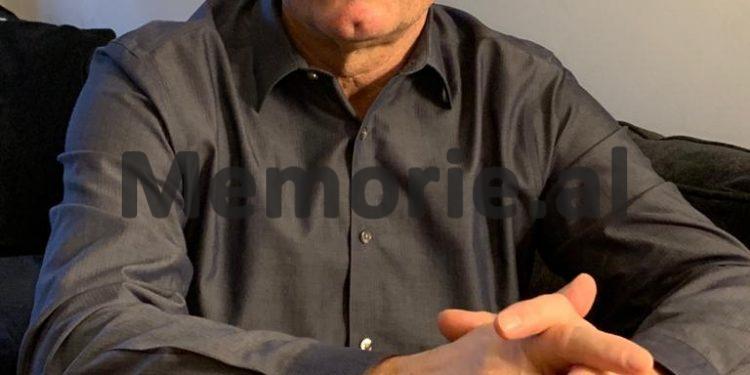
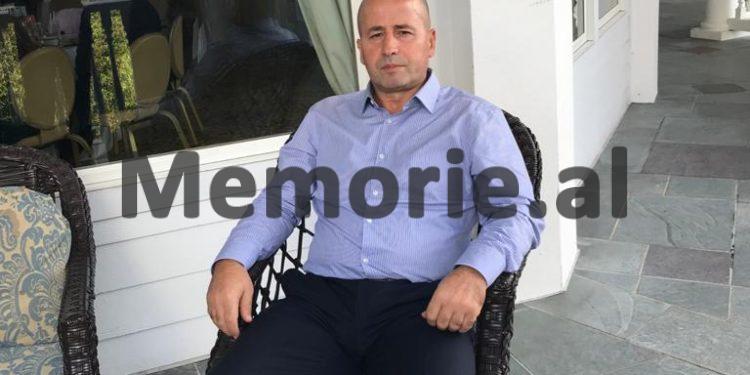
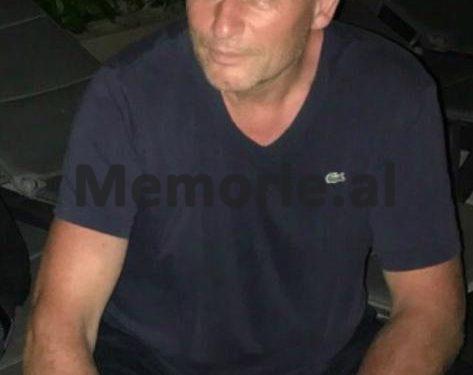
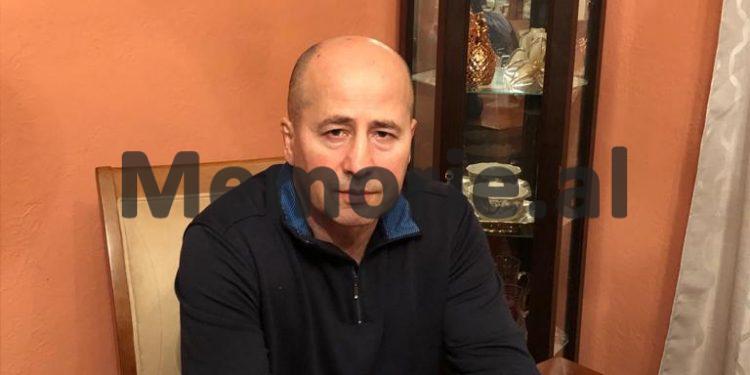
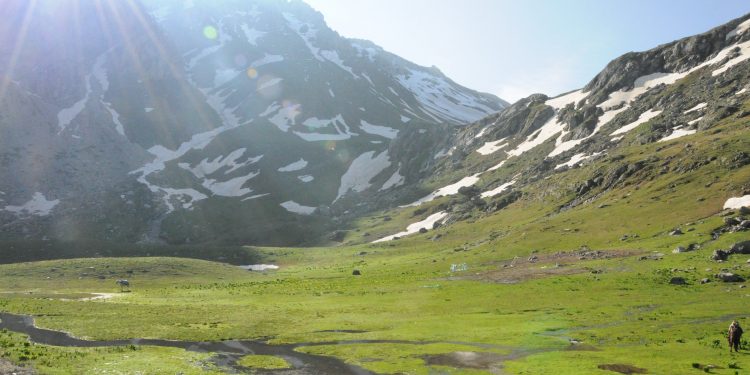
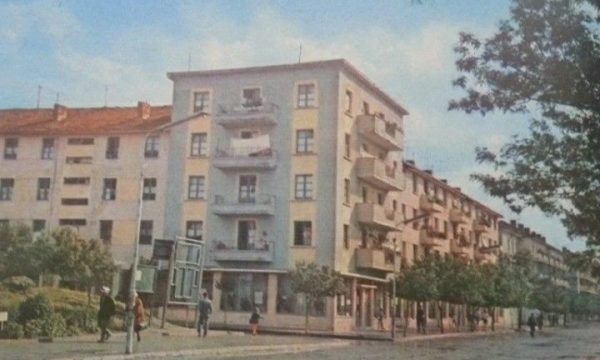

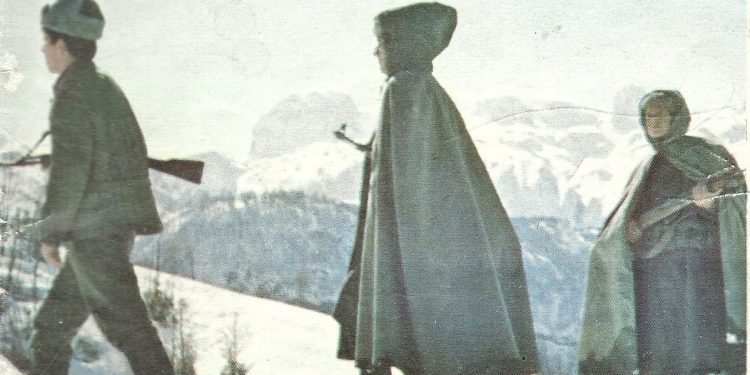
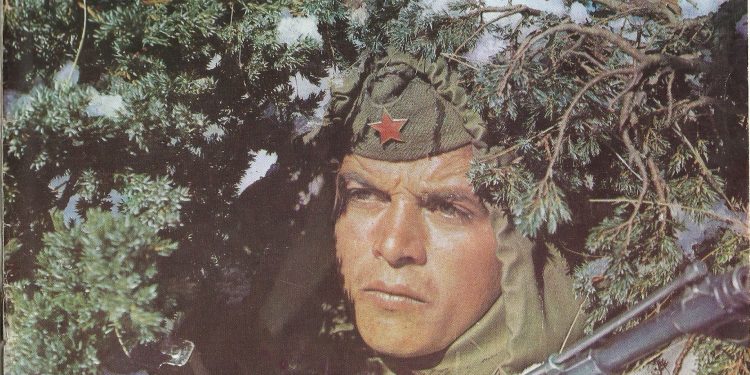

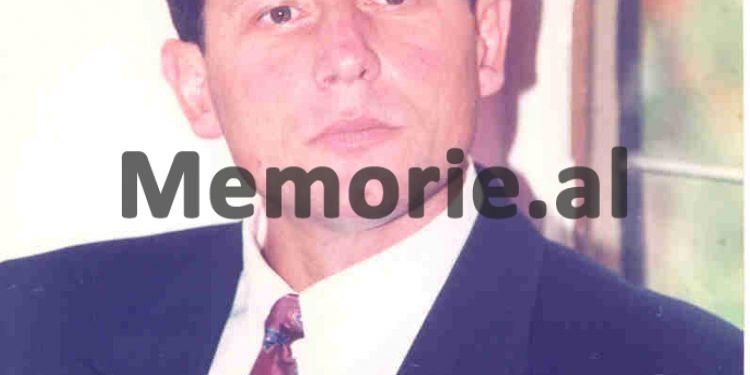
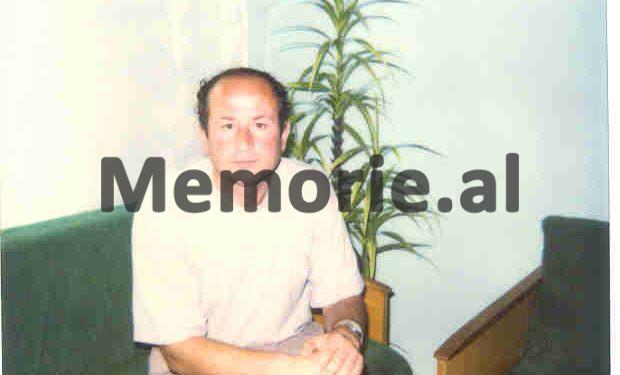
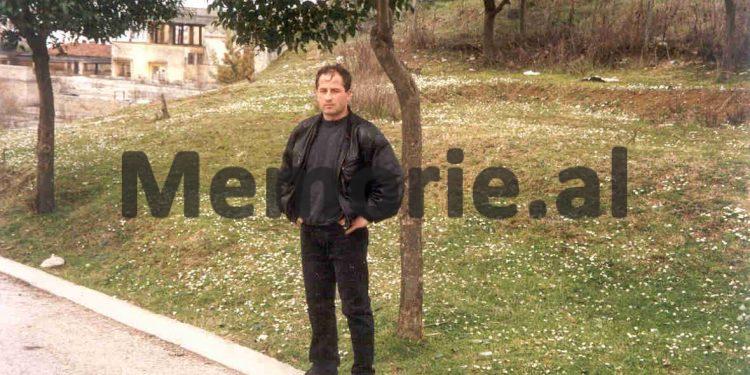
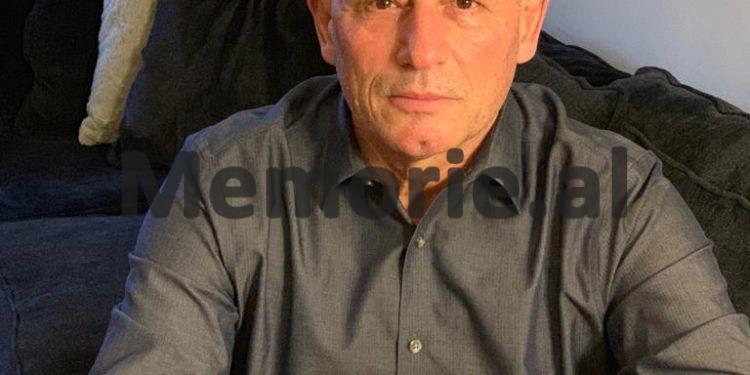
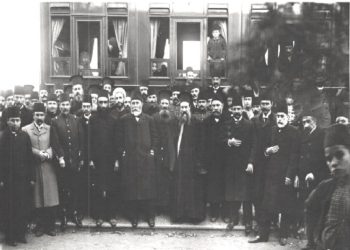
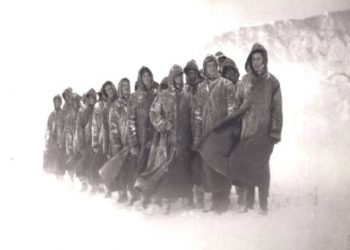

![“When the party secretary told me: ‘Why are you going to the city? Your comrades are harvesting wheat in the [voluntary] action, where the Party and Comrade Enver call them, while you wander about; they are fighting in Vietnam,’ I…”/ Reflections of the writer from Vlora.](https://memorie.al/wp-content/uploads/2025/06/admin-ajax-4-350x250.jpg)


